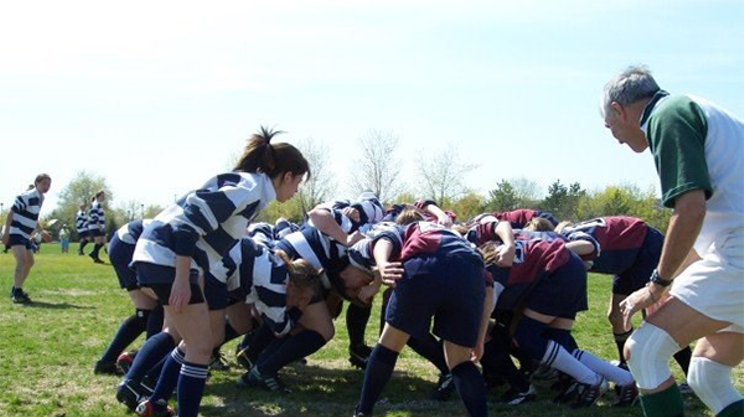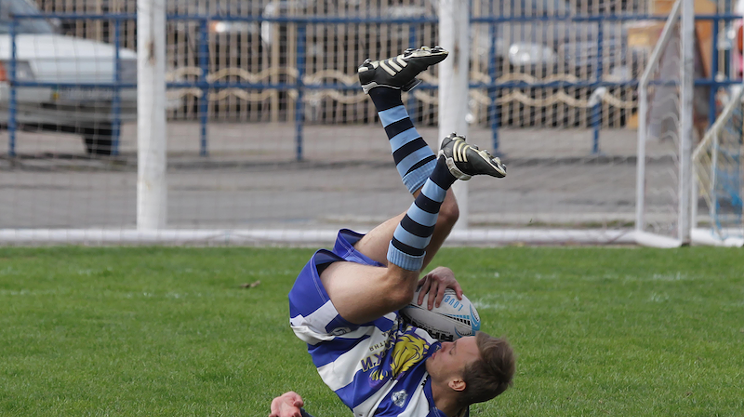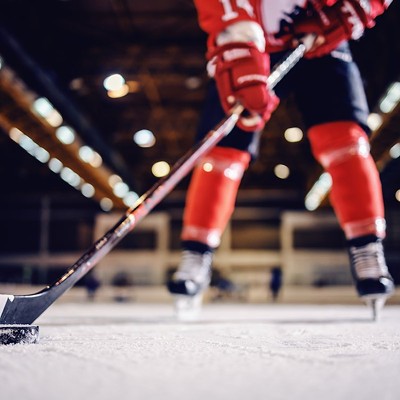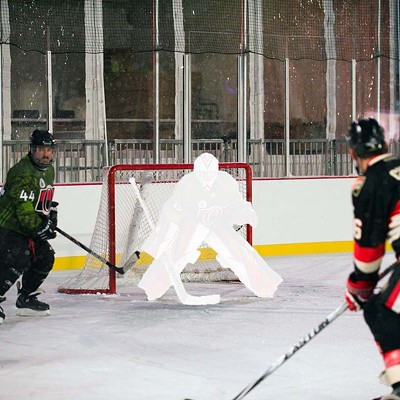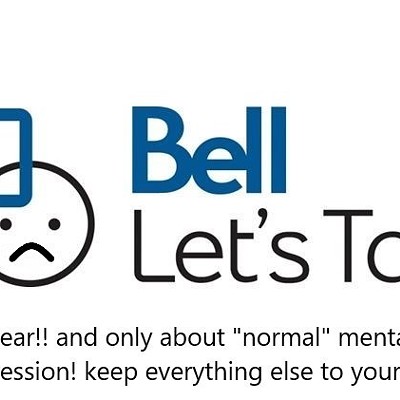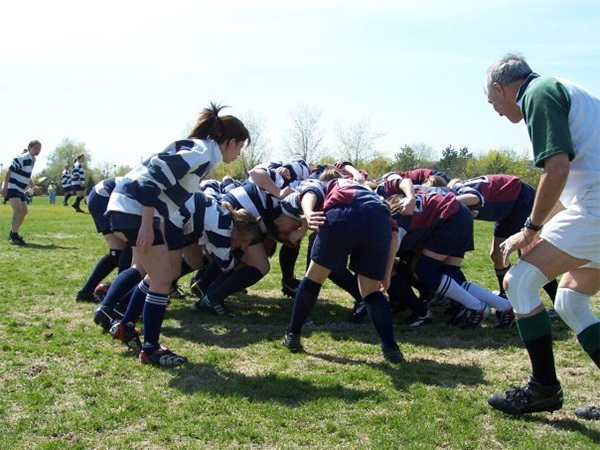
L ast week, the Nova Scotia School Athletic Federation announced it was pulling high school rugby, mid-season, with no warning and I'm assuming, without any idea of the uproar it was setting off. The season is back on, under the care of Rugby Nova Scotia, and we'll have to wait for the summer to see the final result.
Rugby is a sport with more female players than male players in Nova Scotia. Where football is king and socially—if not legally—"boys only," rugby often the best option for women who'd want to play (so let's not pretend gender isn't part of it). Rugby is also part of a narrative around women's bodies and athleticism. It's a place for girls with all kinds of bodies. Have broad shoulders and a bigger body? Are you small and quick? Tall and lanky? Tall and thick? Rugby has a position for all of you.
I was in grade nine at a student council leadership camp when I was dropped during a trust game (why do we do these?). Without missing a beat, a grade 12 student built like me ran over, pulled me up and changed my life. She said, "It's OK; join rugby."
I played second row—I used my broad shoulders to push the scrum (that clump of bodies hunched over at the hip in a tangle of arms) and was boosted into the air during line-outs to catch the ball. I ran for 40-minute halves with few breaks, in rain and sun.
Rugby taught me my body was good. Rugby taught me my body was athletic. After being teased for my weight for many years, I had gotten the message that my body wasn't enough for gym class—let alone school sports. Rugby said, fuck that.
It may seem counterintuitive, but since rugby is a full-contact sport with no padding, the rules of contact are tight and the drills are tighter. Injuries—concussions included—are a part of the game. But you learn how to avoid a dangerous hits. Rugby isn't about hurting; it's about pushing. When I was tackled, I had girls from both teams helping me to my feet.
That's the other important lesson I learned from rugby: Self-care. Staying hydrated, taking a breather, listening to what my body needed and respecting head injuries. I saw athletes from other sports pushing through risky situations afraid of showing weakness. Rugby celebrated being strong and smart, equal parts cheering from the sidelines and nursing our bodies to 100 percent.
That culture means that when you're hurt, you don't hide it. It's reported in official stats. How many more concussions are hiding in the stats of other sports, like hockey? And what message is the NSSAF sending by cutting a sport based on reported stats?
My life now includes lots of exercise: Yoga, spin, circuit classes. My body doesn't look like the athletic ones I see on Instagram, but I know my body is athletic. I know my body is good. Years of rugby that taught me that.
———
Voice of the City is a platform for any and all Halifax individuals to share their diverse opinions and writings. The Coast does not necessarily endorse the views of those published. Our editors reserve the right to alter submissions for clarity, length, content and style. Want to appear in this section? Submissions can be sent to [email protected].

